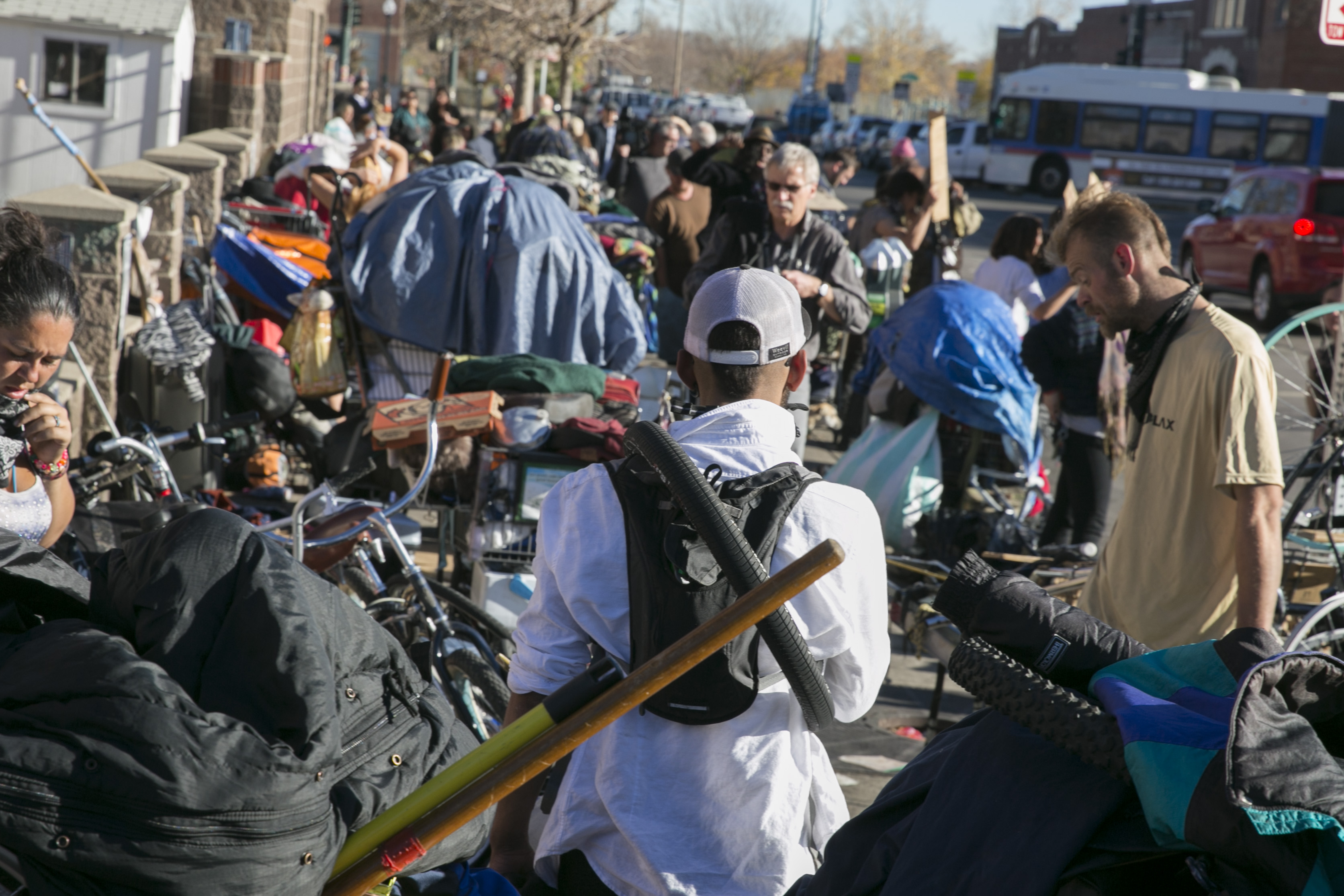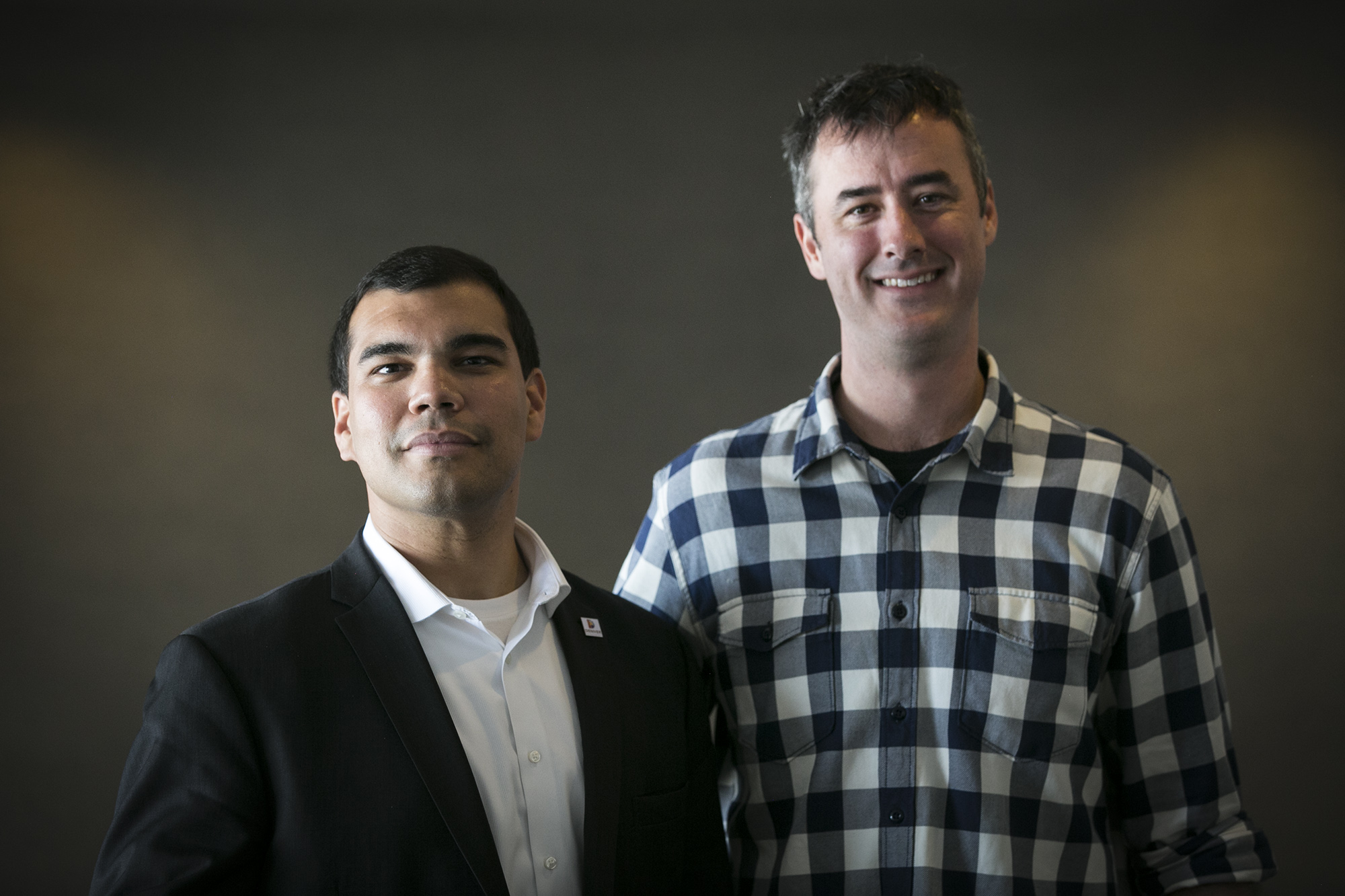
How to end homelessness? It’s a question metro Denver has grappled with for awhile. And in a region experiencing tremendous growth, you cannot talk about homelessness without talking about affording housing. Now, a different approach is taking shape.
Erik Soliván is executive director of Denver’s recently created Housing and Opportunities for People Everywhere, or the Office of HOPE. Will Connelly is the executive director of the regional nonprofit Metro Denver Homeless Initiative, which works independent of the city. They began these positions in January.
Soliván and Connelly spoke with Colorado Matters host Nathan Heffel. They touched on a wide range of topics related to homelessness and affordable housing, including new programs they'd like to test in the metro, what Trump's proposed cuts to the United States Department of Housing and Urban Development (HUD) could mean for the work they do, gentrification and Denver's controversial urban camping ban.

Highlights from the conversation are below.
Soliván on if HOPE replaces the mission of Denver's Road Home, which was billed as the “10-year plan to end homelessness":
"No. The efforts of the HOPE office is broader in scale. Denver's Road Home, at the time that it was created in 2004, addressed a different kind of Denver, a different kind of economics and a different kind of growth in the city. So now as we step back, and look at the issue of affordable housing globally, and see the role Denver's Road Home will continue to play in the area of homelessness, we're going to connect [that] to affordable housing, permanent bridge supportive housing and homeownership, as well as services and workforce training to take a new approach to a growing Denver."
Connelly on a regional plan to address homelessness versus a city-level plan:
"That means that all of the programs and all of the resources dedicated to homelessness [in Denver and the seven surrounding counties] are aligned and they share a set of common goals, and are working towards the main goal of getting every person, or every family, that's experiencing homelessness in the region into housing. The regional work is important because people experiencing homelessness cross city and county lines... so we need to have plans in place to make sure we're coordinating our services and resources... A system to end homelessness, at its core, realizes that homelessness is a crisis. A person that experiences homelessness is in a state of emergency. So a system to end homelessness tries to solve that crisis as quickly as possible, even if that person has other needs like substance abuse or mental health services, budgeting or other life skills."
Soliván on Denver's urban camping band and the city's relationship with these encampments moving forward:
"The camping ban and the media coverage particularly of these clean up days, [when the city breaks up the encampments], are really just capturing a symptom of a larger problem around affordable housing and the housing responsibility that we as a community must meet. The coverage of the clean-up day doesn't fully capture the weeks of services and outreach that occur... Moving forward, we [need to] open up that dialogue with our advocacy groups, inviting them to the table to say how do we look at this together."
Connelly on lowering barriers to help get people into permanent housing:
"We need to make sure that each part of our homelessness system is housing focused, from shelter, to street outreach, all the way up through all the programs that we have, so that we're having these conversations and we're bringing landlords and other folks who have existing units to the table to help us try to figure this out... Homelessness in my view is not an intrinsic characteristic of someone; it's not a personal failing... So kind of normalizing that versus always pointing to the fact that they've experienced homelessness in the past because there is a lot of stigma around that."
More on CPR News' coverage on homelessness and affordable housing in Colorado.









